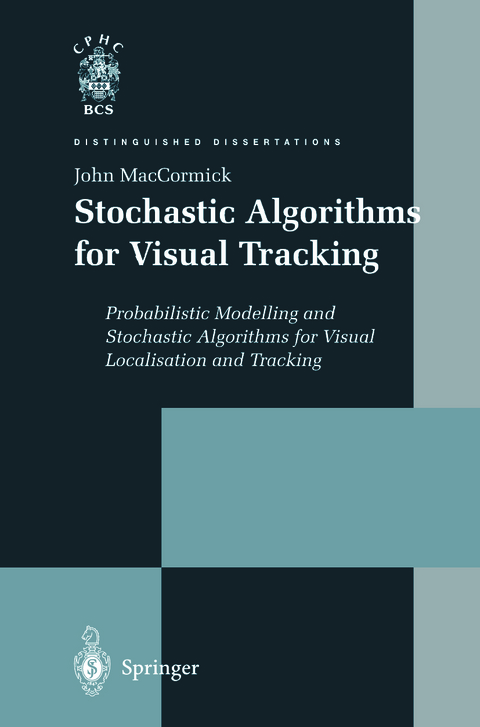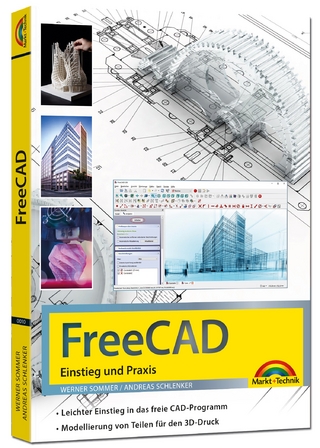
Stochastic Algorithms for Visual Tracking
Springer London Ltd (Verlag)
978-1-4471-1176-4 (ISBN)
1 Introduction and background.- 1.1 Overview.- 1.2 Active contours for visual tracking.- 2 The Condensation algorithm.- 2.1 The basic idea.- 2.2 Formal definitions.- 2.3 Operations on particle sets.- 2.4 The Condensation theorem.- 2.5 The relation to factored sampling, or “where did the proof go?”.- 2.6 “Good” particle sets and the effective sample size.- 2.7 A brief history of Condensation.- 2.8 Some alternatives to Condensation.- 3 Contour likelihoods.- 3.1 A generative model for image features.- 3.2 Background models and the selection of measurement lines.- 3.3 A continuous analogue of the contour likelihood ratio.- 4 Object localisation and tracking with contour likelihoods.- 4.1 A brief survey of object localisation.- 4.2 Object localisation by factored sampling.- 4.3 Estimating the number of targets.- 4.4 Learning the prior.- 4.5 Random sampling: some traps for the unwary.- 4.6 Tracker initialisation by factored sampling.- 4.7 Tracking using Condensation and the contour likelihoods.- 5 Modelling occlusions using the Markov likelihood.- 5.1 Detecting occluded objects.- 5.2 The problem with the independence assumption.- 5.3 The Markov generative model.- 5.4 Prior for occlusions.- 5.5 Realistic assessment of multiple targets.- 5.6 Improved discrimination with a single target.- 5.7 Faster convergence using importance sampling.- 5.8 Random samples using MelvIe.- 5.9 Calculating the partition functions.- 5.10 Further remarks.- 6 A probabilistic exclusion principle for multiple objects.- 6.1 Introduction.- 6.2 A generative model with an exclusion principle.- 6.3 Tracking multiple wire-frame objects.- 6.4 Tracking multiple opaque objects.- 7 Partitioned sampling.- 7.1 The need for partitioned sampling.- 7.2 Weighted resampling.- 7.3 Basic partitioned sampling.-7.4 Branched partitioned sampling.- 7.5 Performance of partitioned sampling.- 7.6 Partitioned sampling for articulated objects.- 8 Conelusion?.- Appendix A.- A.1 Measures and Metrics on the configuration space.- A.2 Proof of the interior-exterior likelihood.- A.3 Del Moral’s resampling lemma and its consequences.- Appendix B.- B.1 Summary Of Notation.
| Reihe/Serie | Distinguished Dissertations |
|---|---|
| Zusatzinfo | IX, 174 p. |
| Verlagsort | England |
| Sprache | englisch |
| Maße | 155 x 235 mm |
| Themenwelt | Informatik ► Grafik / Design ► Digitale Bildverarbeitung |
| Informatik ► Theorie / Studium ► Algorithmen | |
| Informatik ► Theorie / Studium ► Künstliche Intelligenz / Robotik | |
| Schlagworte | computer vision • condensation • Particle filters • Partitoned sampling • Stochastic algorithms • Tracking |
| ISBN-10 | 1-4471-1176-1 / 1447111761 |
| ISBN-13 | 978-1-4471-1176-4 / 9781447111764 |
| Zustand | Neuware |
| Informationen gemäß Produktsicherheitsverordnung (GPSR) | |
| Haben Sie eine Frage zum Produkt? |
aus dem Bereich


